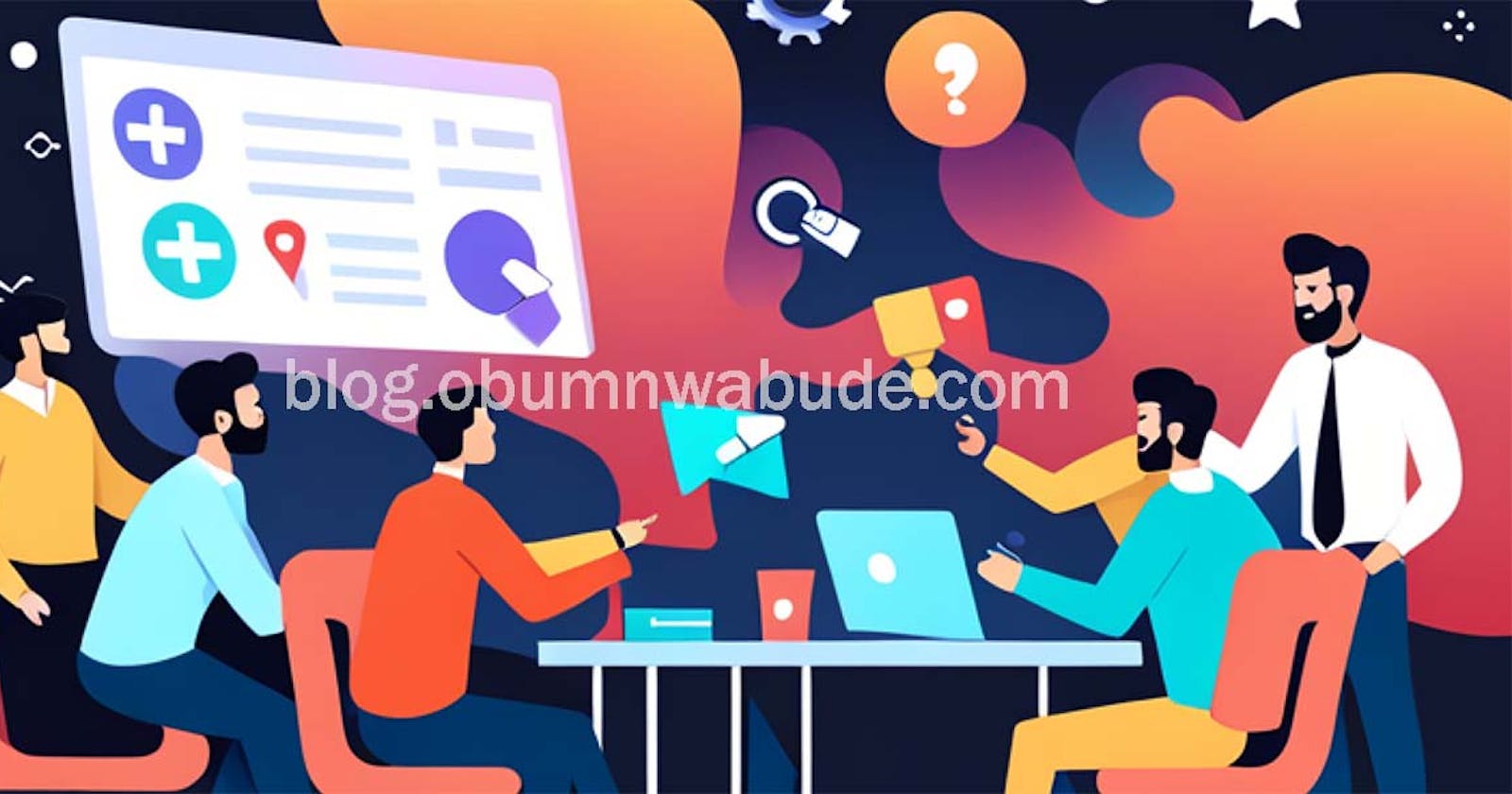So you have been planning this event and have put considerable efforts towards promoting it. The event day is getting closer. You are getting ready to host the event. Arrange yourself and put things in order, to execute the best event ever.
Have a checklist
You should already have a checklist while planning.
By checklist, we mean an outline with Todos for the event's preparation. This outline will usually have checkboxes against each Todo. Or you may strikethrough completed tasks.
For example
Confirm VenueRemind food vendorsConfirm speaker slides
Remind moderators
Print Swags
etc.
Your event will have its unique checklist. This is especially if the event is physical.
If the event is an online session, you can still have a checklist. For example, you should still reach out to the speakers and round up with publicity.
Your checklist stops you from forgetting crucial things. You should have drafted a checklist along the course of planning your event.
You can recreate a checklist for the event day itself. This recreated checklist could contain minor things you want to achieve in the event, like doing a giveaway.
Have a checklist. Follow it and strikethrough or tick against completed tasks. You'll have a better event-hosting experience.
Day-Before Preparations
Your event is drawing closer. You are getting anxious if it will go on well. You are actively discussing with team members tomorrow will be.
Review your checklist for things that have to be done on the day before the event.
This day is the ideal time to confirm and clean your event venue (for a physical event). It is also the perfect time to confirm the preparations of food vendors and DJs (if you booked any).
The keyword is "confirm". If you need those services, you should have booked them earlier enough. You also want to confirm with event volunteers (or ushers) before the event. Of course, you had agreed with them weeks before now.
If this is an online event, you may want to do a "testing the mic" rehearsal with your speakers. You want to have a short simulation of what the event will look like on the chosen conferencing platform of the event.
In this simulation, you prepare yourself and your speaker(s) for the event. Explain what they should expect and how you will switch mics while on stage. If you have a specific moderator or host, they should be involved at this point.
The day before the event is also the time to peak your event's publicity. You can a design specific flyer for "1-day to go". Just make everyone feel the vibe.
One more thing, please don't panic. Your event will go well.
If in case you come across any disappointment, remember that you are in charge and handle the issue rationally.
Be Early
Wow! The D-day is here. Let's get started.
Be at the event before the start time. Arrange the place. Set up roll-up banners. Your team members should help you. Setup the receptionist volunteers too. Keep swags at the entrance. etc.
Please be early for your event so that you can handle any unforeseen issues with the venue. Even if such issues don't exist, you should be early because you want the best.
By being early, consider being at the event venue for at least an hour before the supposed start time. This will enable you to start the event on time.
If attendees come in later than the start time, it is okay to delay and wait for them before starting the event.
However, it is better that attendees arrive late than that you or the team members are late.
Another advantage of being early is networking. You will have more time to engage with event attendees (in addition to during and after the event).
We can't even overemphasize the indispensability of you being early for your event. It should be taboo if you came late, well except the reasons were worth it.
For an online event, join the meeting before everyone else. You and your hosts and speakers should be there before the attendees join.
If you have a little number of attendees, you can make the space lively by doing small intros or telling short stories while waiting for more people to join. This helps to retain attendees till the end of the event.
Whether online or physical events, please be early!
Following the Agenda
The event agenda is the chronological order of programs during the event. It has the estimate for each program.
Your agenda should be ready before the event day. It is something that you will usually list on the event website or page or in flyers. It gives attendees what to expect in the event.
Your event moderator should follow the agenda. It is okay to deviate a little. Especially if we need to delay as a result of an unforeseen circumstance. Or if a speaker is late and then we swap sessions with a present speaker that was to speak later.
Follow the agenda so that attendees get to receive what they expected during the event. Also, follow the agenda so that the event will achieve its purpose to the fullest.
Following the agenda entails announcing what "we" will be currently doing and doing it. "We" here is everyone at the event.
So when it's time for a speaker's session, the moderator/host will announce the session, introduce the speaker, then usher the speaker in.
After this speaker's session, follow the event's agenda by moving over to the next program on the agenda.
Keep doing this till the event ends.
Social Media Break
Social Media connects people. Today, social media serves as social proof that an event took place.
It is common practice that people take pictures/selfies of themselves at an event and post about it on social media.
You could have a big backdrop for pictures. This backdrop could be somewhere around the venue's entrance. The backdrop usually contains logos of event sponsors. If you had set up this backdrop earlier, attendees will naturally snap with it and post the pictures online.
Nowadays, we tend to be more intentional with social media and posting during events. We could have one or more, 5 or 10-minute breaks where we ask attendees to snap and post on various social media platforms.
This creates more awareness for our community. Consider observing this. Ask the attendees to tag you, your speakers, and or your community's social media accounts while posting.
You may want to have hashtags for the event. Event hashtags are usually based on the event's name or your community's name. You can include these hashtags in the posting instructions.
In fact, at the beginning of the event, you can announce that attendees should be taking pictures and sharing what they learn online as sessions are taking place.
Pictures
Pictures here refer to the ones taken by your planned photography and not by attendees during the social media break.
Planned photography could be a well-setup live streaming, a hired photographer(s), or a volunteer community member(s) with a camera(s).
You want them to capture important moments and highlights during your event.
You can have a volunteer posting these captured moments in real-time on your community (or event)'s social media handles. They can be posted while the event is going on and even after the event.
Find time towards the end of the event to take a group picture too.
Event Dynamics
Things don't always go as planned.
That doesn't mean you shouldn't plan. In fact, planning makes it easy to recover from unexpected disappointments during the event.
By unexpected disappointments I mean issues like:
dysfunction of the sound system,
emergency absence of a speaker(s),
interrupted power supply,
late delivery by food vendors,
not enough chairs for attendees,
etc.
We don't want any of these issues to happen. But as you organize events, one or more of such circumstances will take place.
When they occur, please manage the issue rationally. Rationally here means that you should not allow the circumstance to affect your emotions negatively. Don't let it lower your morale.
Accept it. Face it. And solve the problem. Look for solutions. Ask for help. Your team members and even event attendees can help.
If it is something that the event depends on and it came before the event, it is okay to have an emergency postponement or cancellation of the event. It is also okay to have an emergency change of venue if there is an issue with the chosen venue.
Your attendees will understand when you explain to them your honest efforts toward handling these unexpected circumstances.
Event dynamics is a hidden factor that is not usually discussed. Maybe we tend to ignore them because we kind of take care of them as the event progresses. Then we get carried away.
As a good leader, you will be capable of rationally handling any unexpected circumstances as they happen.
One thing is sure, if you properly plan your event, most of these mishaps won't take place.
Feedback
Feedback helps us evaluate our performance.
Across your planning and as the event is going on, chances are that you have been obtaining feedback from various people.
Watch out for constructive feedback and use it to improve. Discuss with attendees after the event and hear what they have to say about the event they just attended.
You can also get team members or volunteers to extract this info during and after the event.
Make it easy to obtain feedback. Maybe provide a feedback form. Send it via email to attendees. Or share it on social media and ask people to fill it.
Use the feedback you get when planning the next event. You will be capable of creating good event experiences.
Congratulations!
You are Strong!
Kudos!
You are an amazing person.
Look into a mirror. Hit your chest. Be proud of yourself.
You just did something that only a few human beings do.
While anyone can organize and host tech events, not everyone does it.
Find time to relax from the stress that you might have incurred across planning and hosting this event.
Most Importantly: APPRECIATE the event speakers, your team members, and the event volunteers. If you can have the audience clap for them (especially for the volunteers) towards the end of the event, please do.
Don't ignore appreciation. Possibly, gift these people something and send them thank you emails.
If you need to report the event on some dashboard for your community please do so. If you need to record the event on some website for past events, please also do so.
Don't defer these "after-event activities for so long. You may forget or get tired to do them.
Also, if you deem fit, write an article on how you organized the event. Or tell the event's story from your point of view.
Post about the event on social media in your handles. Share the unique organizing experiences you had.
Continue with your community plan/calendar. Start planning for the next event when the time comes.
Events bring community members together. Events permit people to network with each other. As you host events, you do something important to the community, Please keep up.
Thank you for hosting an event.
Cheers!

